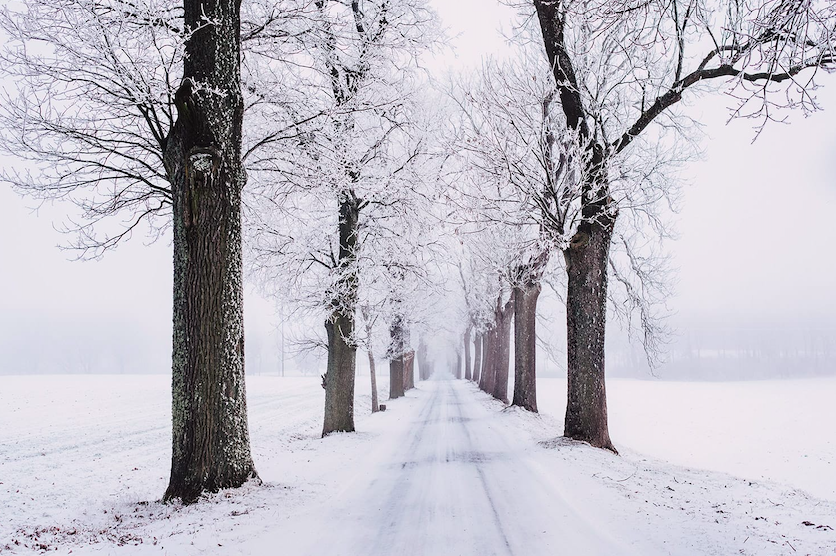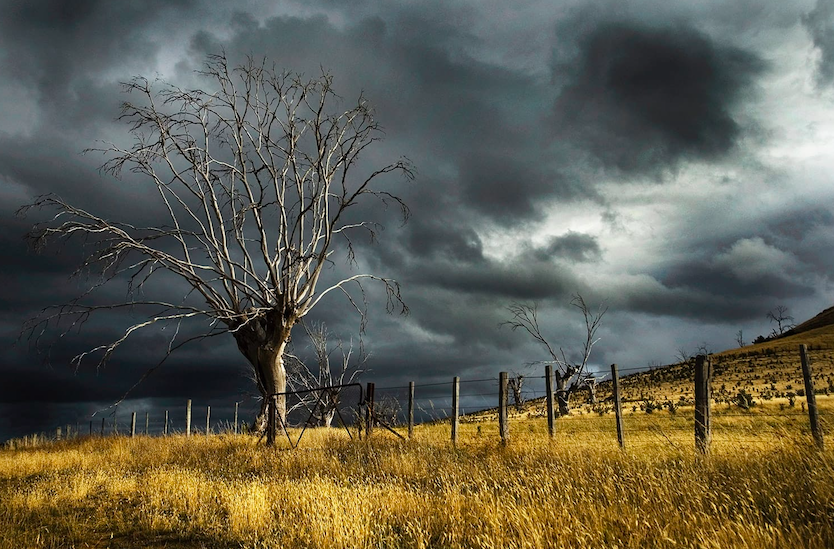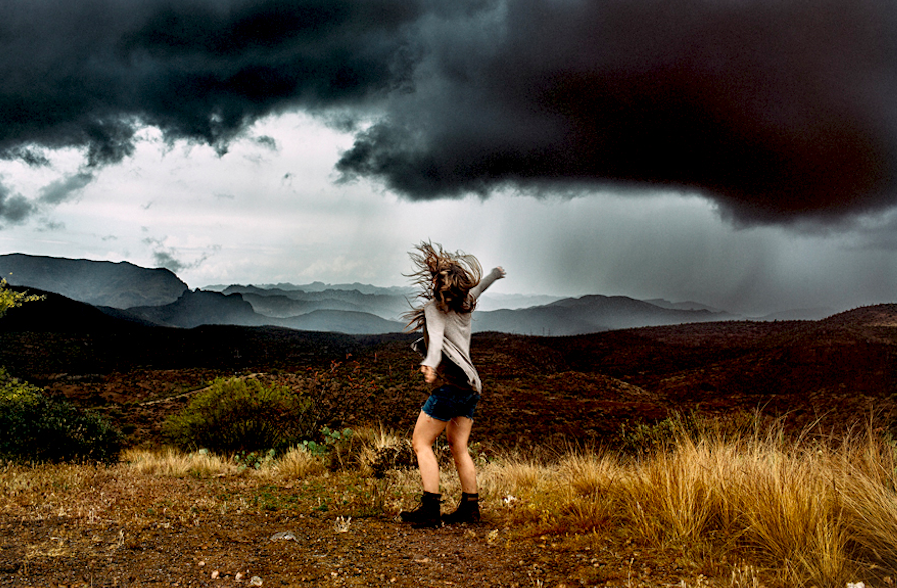Planet Earth just experienced its hottest month of June on record, according to the EU’s Copernicus Climate Change Service, a collaborator with the World Meteorological Organization. The year 2024 is on track to becoming the hottest year ever recorded in history.
Forget about 2023 and all that pesky smoke wafting down from 3000+ Canadian wildfires into the United States; or the historic floods hitting the Northeast; triple digits in the Southwest; or the 844 tornados whirling around the United States. It wasn't just about you — red, white and blue.
More than 61,000+ people died from heat-related causes across 35 European countries in the summer of 2022. Who even remembers Cyclones Freddy, Mocha or Cheneso tearing through Myanmar and Bangladesh; Afghanistan’s cold snap; The Philippines floods; Sao Paulo’s landslides? Tens of thousands went missing or dead due to the atmospheric rivers and bomb cyclones sweeping across the planet last year.
The Greenhouse Effect + a Heat Dome has put 2024 on track to becoming the hottest year yet in planet Earth’s recorded history, but this article isn’t an abstract about China > United States > India > Russia > and Japan being the largest producers of CO2. This article is about you and people like you all over the world.
Recently, a Brown Recluse Spider (BRS) crept into a suburban neighborhood in Charlotte North Carolina and set it sights on a healthy suburban housewife and mother. It is but one of three poisonous spiders in North America and unlike any spider anywhere in the world — has three eyes. The initial bite was treated at Urgent Care; subsequent hospitalization; intravenous antibiotics; hemolysis (the bursting of red blood cells); and a slow were told and painful demise to a premature death and final resting place at Forest Lawn East Cemetery. The encounter is considered an anomaly in that the BRS has never been documented in North Carolina — until now.
While the explosion of activity since Covid-19 has increased the planet’s CO2 levels by 7% this year, mankind continues to stare and coif itself in the cosmos. According to the U.S. Environmental Protection Agency, the Transportation Sector is responsible for 28% of greenhouse emissions around the world; Electricity Sector (25%); Industry (23%); Residential (13%); Forestry (12%); Agriculture (10%). That includes all Cow Burps, too: which account for about 9% of the methane in the atmosphere. The National Oceanic and Atmospheric Administration in Mauna Loa Hawaii gauges the CO2 levels in the Earth’s atmosphere at 422 ppm (parts per million) and herewith, it seems, they're onto something: As man bends all nature to his comfort he bends it to his cost.
As swaths of urban cities and suburban neighborhoods emerge to glorify human civilizations, they exploit ecosystems for which ecosystems adapt. While the lifespan of the BRS is roughly 1-2 years, they’re not only migrating and increasingly impervious to pesticides; but have shown in laboratory settings that they can live almost their entire life in extreme heat or cold without any food or water. With three eyes on the pie, it can fairly be said something is finally starring back at man.
Under a White Sky
That man should have dominion “over all the earth and over every creeping thing that creepeth upon the earth” is a prophecy thats hardened into fact. So pervasive are human impacts on the planet that it’s said we now live in the The Anthropocene: a geological epoch created by man's impact on the Earth's geology and ecosystems.

AP
Elizabeth Kolbert’s "Under a White Sky" takes a hard look at the new world we’re creating. Along the way, she meets biologists who’re trying to preserve the world’s rarest fish in a single tiny pool in the middle of the Mojave; engineers who’re turning carbon emissions to stone in Iceland; Australian researchers trying to develop a “super coral” that can survive on a hotter globe; and physicists that are contemplating shooting tiny diamonds into the stratosphere to cool the earth.
One way to look at human civilization, says Kolbert, is as a ten-thousand-year exercise in defying nature. She explores the ways in which our capacity for destruction has reshaped the natural world, and examines how the very sorts of interventions that have imperiled our planet are increasingly seen as the only hope for its salvation. By turns inspiring, terrifying, and darkly comic, "Under a White Sky" is an utterly original examination of the challenges we face.
Climate Mitigation
While the rise in global average temperatures are due to emissions from burning fossil fuels like coal, oil, and natural gas, the question isn't if we should be reducing emissions of greenhouse gases, but rather when and how we intend to remove them from the atmosphere?
Solar, wind, water, geothermal, bioenergy & nuclear has and continues to be the war call of the environmental movement, and many leaders pay lip service. Candidate Biden made bold commitments on climate and environmental justice on the campaign trail, sadly demurring from those commitments in office.
He failed to regulate the fossil fuels industry; suspend existing oil and gas leases; and approved 6,430 new permits for oil and gas drilling on public lands in his first two years in office. He's outpaced even his predecessors drilling permit approvals.
Where he’s shone is to electrify the nation’s grid; a $1.2 trillion infrastructure bill (the biggest in the nation’s history) including a $300 billion for public green investment; $400 billion for renewable energy subsidies; and stimulated billions of dollars in private investment for electric vehicles, charging stations, and batteries across the nation.
Called the "Climate King," he met with Charles III this week whose soft power and tireless examples of organic farming may be the very key to changing societal perceptions about prosperity. "Harmony: A New Way of Looking at Our World" is worth a read.
Because the smart money is really about removing carbon dioxide (CO2) from the atmosphere by enlarging forests; restoring wetlands; and carbon sequestration: capturing and storing atmospheric carbon dioxide. Governments, companies, and most importantly consumers who create carbon dioxide should be required to capture and store it — simple as that.
Pesticides, too. Insect-rich wildlife habitats like hay meadows, marshes, heathlands and tropical rainforests are being destroyed by an estimated 3 million tonnes of pesticides now going into the global environment every year that degrade the soil; choke the rivers; and have effectively extinguished 75% of the insects that existed just 50 years ago on earth.

AP
But for the Brown Recluse Spider, of course, and a plethora of superbugs, viruses, and parasites who can resist antibiotics, evade defense mechanisms, and take over cellular metabolism for their own benefit.
With stunning war like tactics that are impervious to pesticides, water, climate, soil, food, or even the temples or infrastructure of man. They feed upon and in time will bleed the oblivion or reflection from man.








